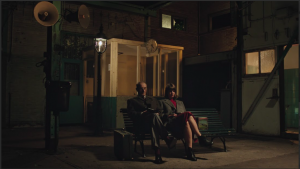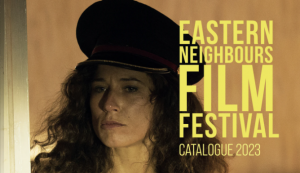
Papusza
| Director | Joanna Kos-Krauze, Krzysztof Krauze |
| Producer | Lambros Ziotas – Argomedia Sp. Z o.o., (Telewizja Polska S.A., Canal+ Polska, Studio Filmowe KADR) |
| Writer | Joanna Kos-Krauze, Krzysztof Krauze |
| Cast | Jowita Budnik, Zbigniew Walerys, Antoni Pawlicki |
| Editor | Krzystof Szpetmanski – PSM |
| Camera | Krzysztof Ptak, Wojciech Staron – PSC |
| Year | 2013 |
| Length | 131 min |
| County | Poland |
| Subtitles | English |
| Section | CURRENT ENGAGING CINEMA |
The true story of Papusza, the first Roma woman who put her poems into writing and published them, confronting the traditional female’s image in the Gypsy community.
SYNOPSIS
A biopic of amazingly gifted woman who wanted to preserve her Roma culture with words, but had to pay a painful price for it. The Polish poet Jerzy Ficowski discovered her great talent for poetry and published her works, but this led to a tragic paradox: a famous poet was living in poverty, rejected by the Roma community for betraying their secrets.
Het waargebeurde verhaal van Papusza, de eerste Roma-vrouw die haar gedichten publiceerde, waarmee ze het traditionele beeld van de zigeunervrouw aan de kaak stelde.
VERHAAL
Het verhaal van een ongelooflijk begaafde vrouw die haar Roma-cultuur wilde preserveren met woorden, maar daar een pijnlijke prijs voor moest betalen. De Poolse dichter Jerzy Ficowski ontdekte haar grote talent voor poëzie en publiceerde haar werk. Dit leidde tot een tragische paradox: beroemde dichter die in armoede leefde, verworpen door de Roma-gemeenschap voor het verraden van hun geheimen.
FESTIVALS & AWARDS /selection
Karlovy Vary International Film Festival, 2013 – Special Mention
Thessaloniki International Film Festival, 2013 – Open Horizons Award
Valladolid International Film Festival, 2013 – Best Director, Best Actor, Youth Jury Award
Chicago International Film Festival, 2013
Istanbul Film Festival, 2014 – Special Jury Prize
DIRECTORS’ STATEMENT
“Papusza was a Roma girl, born in a carriage, an autodidact, who in the end was mentioned in the world‘s encyclopaedias and had her work translated into many languages. She was also named as one of the 60 most important women in Polish history. For us, making this film was an opportunity to introduce the world of the Roma and to give it back its dignity.” The film was recently chosen as the most important Polish production of the past twenty years.









